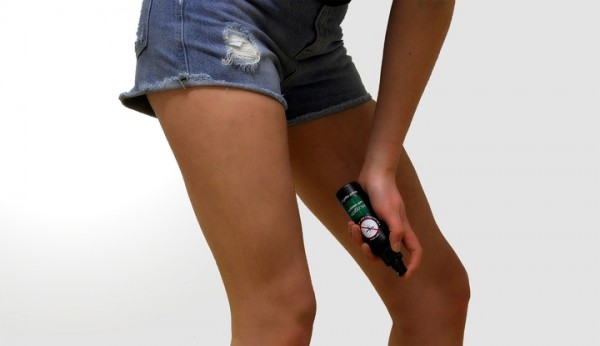New Insecticide in Crystal Form, Efficient Against Mosquitoes and Malaria
Researchers at New York University recently used a simple "heating and cooling" process to develop a new crystal form of deltamethrin, an insecticide commonly used to control malaria, resulting in an insecticide with a maximum of 12 times more efficient against mosquitoes compared to the currently existing form.
The research findings which the Proceeding of the National Academy of Sciences or PNAS published may offer a much-needed and cost-oriented insecticide substitute in the face of increasing resistance among mosquitoes.
According to NYU chemistry professor Bart Kahr, "The use of more active crystal forms of insecticide is a simple and powerful" tactic from enhancing commercially available compounds for control of malaria, avoiding the need for devising new products in the ongoing battle against mosquito-borne illnesses.
Kahar, who's one of the work's senior authors added, improvements in controlling malaria are needed as immediately as ever during the pandemic that's affecting almost the entire world.
ALSO READ: Study Presents an Invasive Asian Mosquito Species That Threatens African Cities

Insecticides like deltamethrin can help prevent the spread of illnesses which mosquitoes carry and are frequently sprayed indoors and on bed nets.
Malaria, a Major Global Health Crisis
Reports on this study indicate the number of deaths this year in Africa due to Malaria is forecasted to double, resulting from COVID-19-related disruptions to supply chains.
Kahr said, there is a need for public health measures to limit both infectious diseases, as well for malaria, this comprises insecticides that are more effective.
According to information gathered on this condition, Malaria is a major public health crisis globally, with over 200 million cases and 40,000 mortalities reported annually.
Insecticides like deltamethrin can help prevent the spread of illnesses which mosquitoes carry and are frequently sprayed indoors and on bed nets.
Nonetheless, these particular insects are increasingly turning out to be resistant to insecticides, leaving scientists and public health seeking alternatives to go with modes of action.
DON'T MISS THIS: UK Might Roll Out Antibody Tests With at Least 98% Accuracy by the End of the Year
In Crystal Form
A lot of insecticides which include deltamethrin are in crystal form, the study focus for Kahr and Michael Ward, a fellow chemistry professor at NYU.
When mosquitoes enter the insecticide crystals, the insecticide gets absorbed through their feet, and if it works, it kills the insects.
As part of their study on "crystal formation and growth," the two chemistry professors investigated and manipulated insecticide crystals, discovering their substitute forms.
Moreover, in their PNAS-published study, scientists heated the commercially available deltamethrin form to 230°F for a couple of minutes and allowed it to cool at room temperature.
Heating and Cooling Process
The heating and cooling process resulted in the new crystallized deltamethrin form which comprised long, tiny fibers burning from one point.
The crystallized deltamethrin was tested on two malaria-transmitting mosquito species: the Anopheles quadrimaculatus and Aedes aegypti mosquitoes; and fruit flies.
As a result, the new form of insecticide worked effectively 12 times faster than the current form. The researchers proposed that fast-acting insecticides are essential for the quick control of mosquitoes prior to their reproduction or continuation of the spread of the disease.
In addition, the new insecticide in crystal form stayed stable, as well and it was able to kill mosquitoes for at least three months quickly.
To mimic how the two deltamethrin forms would perform in stopping the spread of malaria, scientists turned to epidemiological modeling, proposing that the use of this new form in indoor spraying, as an alternative to the original form would considerably suppress the transmission of the disease, even in regions that have high insecticide resistance levels.
IN CASE YOU MISSED THIS: Tricare Issues an Apology Statement After Telling 600k Beneficiaries They've Had COVID-19.
Check out more news and information on the Invasive Mosquitoes and Malaria on MD News Daily.
Oct 13, 2020 08:00 AM EDT





